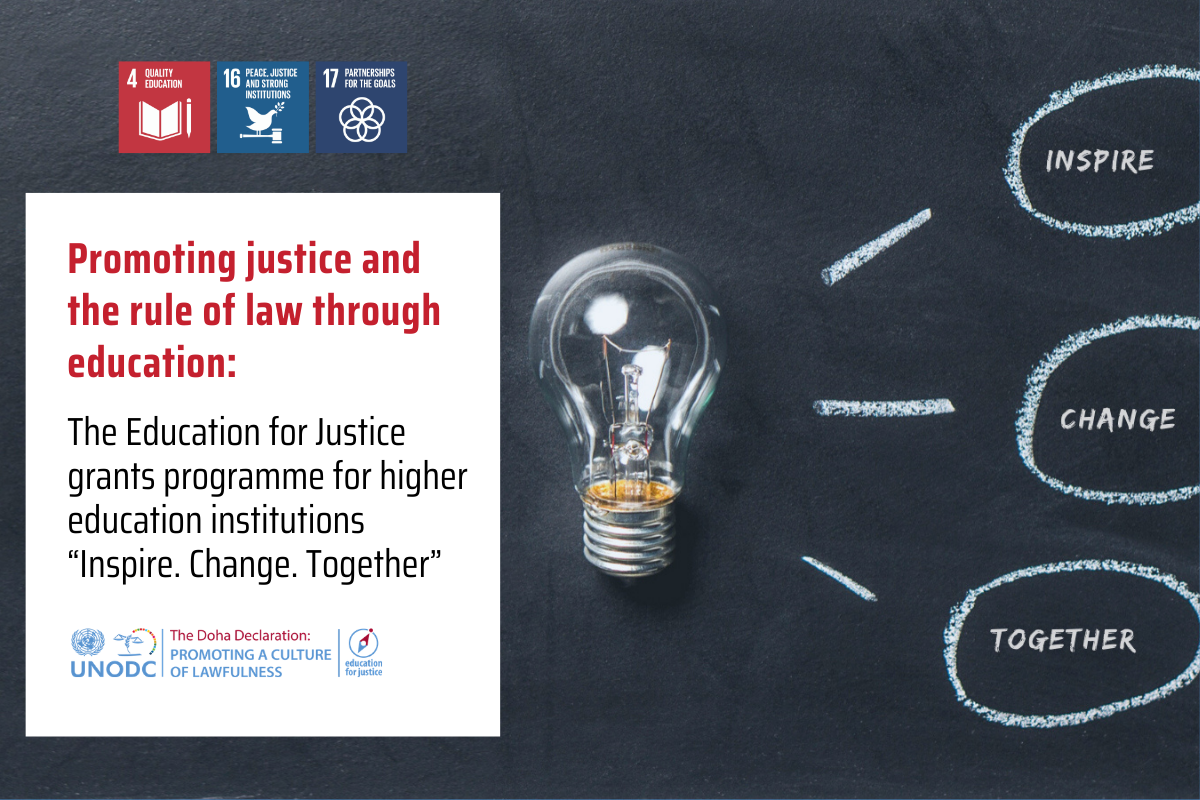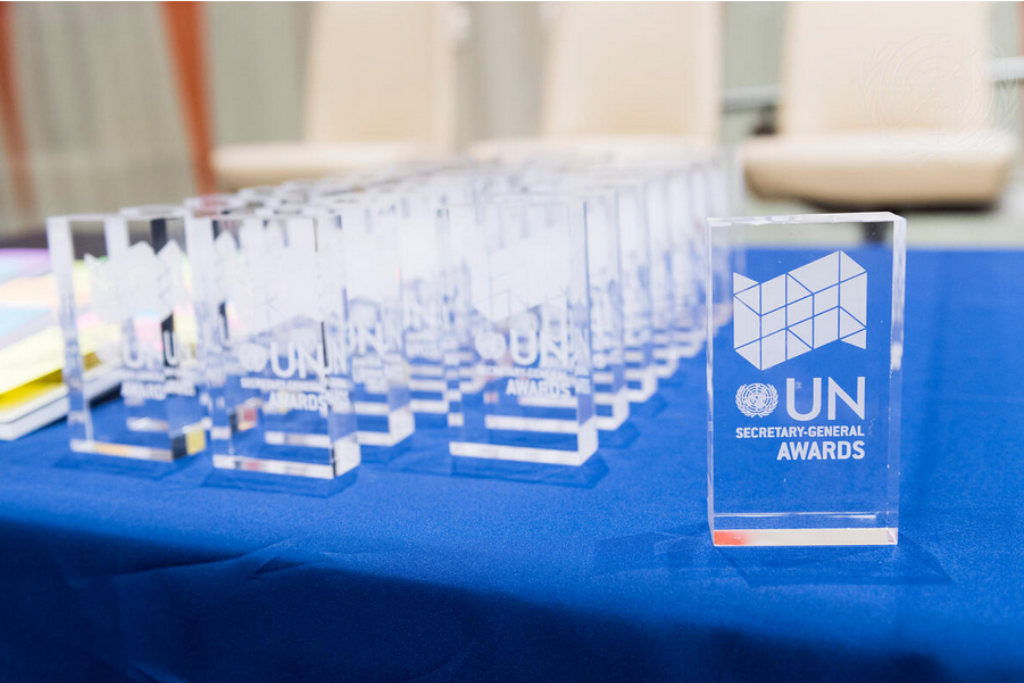E4J’s Global Dialogue Series: reimagining education for a more just world
09 December 2020 – Had it not been for the COVID-19 global pandemic, UNODC’s headquarters would have been swarming this past week with academics, educators, experts, and representatives from international organizations and multinational corporations for the largest conference ever held under United Nations auspices to discuss the crucial link between education and the rule of law.
Instead, over 2,100 participants from 109 countries gathered virtually, and safely, for the unprecedented Global Dialogue Series launched by UNODC’s Education for Justice (E4J) initiative on 1 December, debating the forward-looking perspectives ensuing from the pandemic to reimagine education for peaceful, just, and inclusive societies.
Hosted by E4J, along with a number of UNODC’s Field Offices and a broad range of partners such as international organizations like UNESCO, UNRWA, the World Economic Forum, and the Ban Ki-moon Centre for Global Citizens, and organizations including the Community of Portuguese Language Countries (CPLP) and the International Association of Universities (IAU), some 178 external speakers took part in 38 sessions conducted in seven languages over the course of four days.
|
The conference addressed a number of challenges, not least of which is the fact that 190 countries have had to enforce school closures this year, leaving over 1.5 billion children out of class. Some have had to adapt to online home learning, but many do not even have the opportunity to resort to that option, with no access to the appropriate technology. This situation has also greatly affected higher education institutions everywhere.
As Marco Teixeira, Senior Programme Officer and Coordinator of UNODC’s Global Programme for the Implementation of the Doha Declaration elaborated during the conference, these challenges have been exacerbated by inequalities around the world.
First, many communities do not have the technology needed – whether in terms of devices or Internet connections – to access distance learning.
Second, to adequately promote the rule of law and ensure the future is more just and prosperous (a challenge that predates the pandemic), there is a need to continue reshaping existing forms of education to ensure that values such as integrity, justice, equality, and respect are enshrined in a global curriculum.
Third, the millions of students completely cut off from education during school shutdowns (estimated to number 450 million by UNESCO) will drastically impact future generations if these trends continue. This is an impact which will be felt on an economic and a social level, unless youth can make their voices heard and become empowered to take an active role in shaping their own future.
Fourth, the pandemic has aggravated existing gender inequalities and gender-based violence, with an increased risk for adolescent pregnancy, and early and forced marriage, amongst others.
|
Fifth, COVID-19 has widened the pre-existing gap between rich and poor children and the education they are receiving, adding to the vulnerability of some groups, and increasing socio-economic inequalities.
Sixth, multilingualism and the regionalization of educational material and tools – both of which are key factors in the wide reach of E4J – are foremost priorities to ensure no child is left behind in these circumstances.
Seventh, and lastly, the pandemic has had a markedly detrimental effect on the achievement of the Sustainable Development Goals (SDGs) worldwide. Educators in schools and higher education institutions, who play a major role in this mission, need more support and capacity-building on rule of law education, with quality resources, innovative tools, and venues to exchange their experiences.
The Global Dialogue Series is just the latest contribution made by E4J to tackle these and other challenges. To date, over 1.4 million students worldwide have engaged in 600 E4J activities, using the more than 170 tools and materials developed by E4J and its partner organizations.
The rule of law is fundamental for forging relationships of mutual accountability and reliability, and for building trust in public actors and institutions; the earlier education starts on these themes, and the more widely and succinctly it reaches learners everywhere, the more effective it will be, especially in the midst of a global pandemic.
Today, the future of education on issues related to justice, the rule of law, the SDGs, and social cohesion must be planned with interactive discussions on a wide platform; with the launch of E4J’s Global Dialogue Series, an important next step has been taken.
Additional information
Education for Justice


